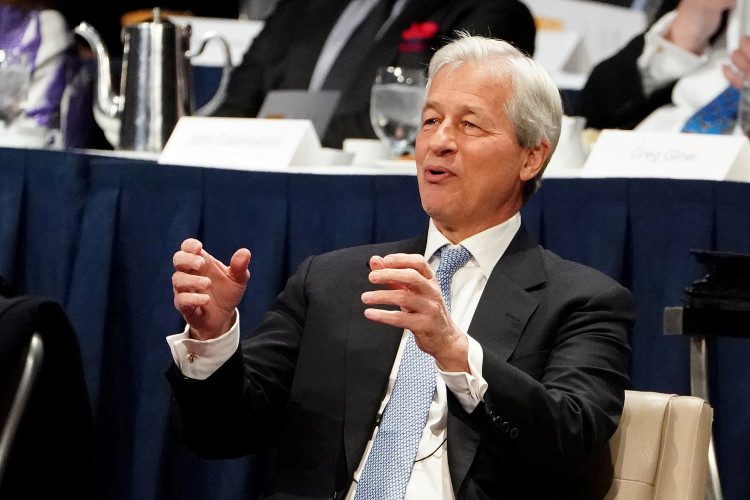Jamie Dimon, CEO of JPMorgan Chase, raised serious concerns about escalating geopolitical risks while presenting the bank's third-quarter earnings, despite its strong financial performance. In a stark warning, Dimon described the global landscape as "treacherous and getting worse," emphasizing the potential impact on both the economy and the broader course of history.
"There is significant human suffering, and the outcome of these situations could have far-reaching effects on both short-term economic outcomes and more importantly on the course of history," Dimon stated, referencing the ongoing conflicts in Ukraine and the Middle East, particularly Israel's war against Hamas and Hezbollah. His comments come as global tensions have surged, with conflicts intensifying and geopolitical uncertainties shaking the markets.
While Dimon highlighted the geopolitical challenges, JPMorgan reported solid financial results that exceeded Wall Street's expectations. The bank's net income for the quarter stood at $12.9 billion, or $4.37 per share, outperforming analysts' predictions. Revenue for the period reached $42.7 billion, driven by robust net interest income of $23.5 billion, which saw a 3% year-over-year increase.
Despite the earnings success, Dimon warned about several critical issues that could weigh on the U.S. and global economies. "There are large fiscal deficits, infrastructure needs, restructuring of trade, and the remilitarization of the world that we need to address," he noted. These factors, he said, could have long-term implications that go beyond immediate economic forecasts.
Dimon's warnings about geopolitical risks are not new. He has consistently sounded alarms over rising tensions worldwide, describing the current situation as one of the most dangerous periods in recent decades. Last year, Dimon characterized the global environment as "the most dangerous time the world has seen in decades," and his latest remarks only underscore his growing concern about the worsening situation.
The JPMorgan CEO also pointed out that while inflation appears to be slowing and the U.S. economy has so far avoided recession, there are significant headwinds that could alter the current trajectory. He noted that the U.S. federal debt, now exceeding $35 trillion, remains a critical issue that could undermine the Federal Reserve's plans to stabilize the economy. "Ballooning government debt is, by nature, inflationary, and could complicate the Fed's efforts to manage economic growth," Dimon said.
Dimon's skepticism about the Federal Reserve's ability to engineer a soft landing for the U.S. economy also took center stage. While the Fed has recently revised its core inflation outlook downward, Dimon expressed doubts about whether inflation will subside as easily as some predict. He has previously estimated only a 35% to 40% chance of achieving a soft landing, emphasizing the complexity of the current economic environment.
JPMorgan's strong performance in the third quarter was supported by its diversified business model, even as geopolitical and economic concerns loomed large. The bank's stock rose more than 1% in premarket trading following the earnings announcement, continuing a trend that has seen JPMorgan shares rise about 25% so far this year. The positive market reaction underscored investor confidence in the bank's resilience amid uncertain times.
Dimon also addressed the broader implications of geopolitical instability, citing the potential for these conflicts to reshape global trade and economic alliances. "We have been closely monitoring the geopolitical situation for some time, and recent events show that conditions are treacherous and getting worse," he reiterated. His concerns reflect a broader anxiety among financial leaders about how these crises could affect global markets and economic stability.
Beyond the immediate geopolitical threats, Dimon highlighted several structural challenges facing the U.S. economy, including the need for significant infrastructure investments and the restructuring of global trade policies. "While we hope for the best, these events and the prevailing uncertainty demonstrate why we must be prepared for any environment," he cautioned.





